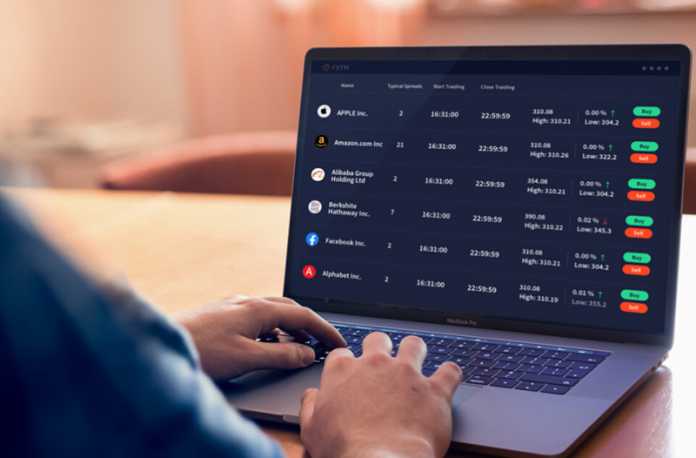By Stella Lincoln
Investing is utilizing your additional money to earn profit in the future. It is acquiring the utmost financial benefit of your hard-earned income. However, investing requires a lot of attention and knowledge regarding the stock market and other financial terms.
Only 20% of professionals can become successful traders. The market is recovering after the great depression of COVID19. See the following recovery graph of the US stock market.
The parameters predict that it is a better opportunity to invest in the stock exchange. Let’s discuss some of the tips and tricks of investment for novices.
1. Choose Your Broker
For trading, you are required to open a brokerage account with an online stockbroker. The account is a sort of registration in the stock market. Research and select your stock broker wisely, as brokers will handle your account, and much of your profit will depend upon their expertise. Consider the following factors while selecting a broker;
- Trading commission fees
- Standard of mobile application
- Availability of research and educational tools for clients.
- An adequate website with an attractive interface.
The selection of broker may be affected by personal preference. You can choose market leaders such as; Fidelity ad Charles Schwab or you the entrepreneurs like; Robinhood, SoFi, and WeBull. See the following stock brokers arranged on the number of awards.
2. Select your Niche of Trade
Suppose you desire to trade an asset; you first need to select the niche of trade you want to do. The two basic types of traders are; market orders and limit orders. The market order refers to the type of trader who can trade an asset at the best price available on the spot.
However, the limit order does not impose any such condition; you have greater control over your money and can trade at any time. After specifying your niche, you can consider placing trailing stop loss. This will facilitate you to increase sell momentum and automatically initiate selling.
3. Extract Stocks to Trade
Once you have finalized your broker and niche, you can buy stock. If you’re a beginner, it would be better to trade Exchange-Traded Funds (ETFs) rather than directly jumping overstocks. The ETF will allow you to purchase a bundle of different stocks if you are not confident about buying a single organization.
It depicts the core indices like; S&P 500, Nasdaq, and Dow. These indices will nourish you with enough required experience for the US stock market. The major indices of the globally leading stock exchanges are; Dow, Nasdaq, NYSE, Wall Street, S&P 500, and Stock Exchange Hours.
4. Estimate the Cost and Risk of Trading
The inadequate calculation of expenses can be the biggest hurdle in successful trading. These are the monetary charges incurred on the purchase of stocks. It requires being included in the overall cost of a stock. Consider using a website like Grufity stock market research to do more in depth analysis and analyze stock prices.
If you purchase stock from an online broker selected above, there will be no additional charges. But if you are trading; mutual funds and ETFs, they will charge an additional fee. These expenses are collectively known as the expense ratio. The ratio is managed by an individual.
You have to pay a certain percentage of funds to that individual on an annual basis. For instance, the expense ratio is 0.2%, and then you have to pay $0.20/year in expense for every $200.
5. Understand Relationship in between Stocks and Tax Bill
The relationship between stocks and the tax bill is similar to your earning and income tax. Make sure that you have acquired enough knowledge regarding the annual tax bill. It is obligatory to understand the tax rules of the market.
The taxes you pay are known as capital gains taxes. If you hold stock for less than a year, you’ll pay more capital gains and vice versa. Conclusively, the tax bill supports a long-term investment model. Every market has its wash sale rule to secure the tax paying process. You need to understand that rule and pay the tax bill as per the requirements.
6. Start Trading Gradually
Prior to trading, you have to transfer some money to the brokerage account for trading. After the money transfer, you have to select a stock you want to trade. Select the stock, order type and place the order of purchase. Ensure that your order executed properly.
The market order executes immediately; whereas, the limit order took some time. It is suggested not to rush in trade. Gradually increase your ask and bid price. The written tips are not the exact depiction of market circumstances; learn from the practicality of the field.
7. Acquire Advanced Trading Strategies
Once you have initiated trade and learn a bit about the market, start studying advanced trading strategies. The First Class Dissertation advises you to include these advanced strategies in your tool kit and utilizing them with time. These tricks will expose you to numerous opportunities for making a profit.
For instance, you can use trading on margin facility after some time. In this strategy, you borrow money from your broker for trading stocks. But, this approach is risky, and you may lose all your assets in this case. The short stock strategy is an advance and less risky one. The trader sells stock at higher prices and buys the same stock when the prices fall.
8. Don’t Get Scared from News
The media and traders are working on different agendas. They are working to increase their views among viewers. However, traders are working to earn profit from their investment. This is a difference of opinion between traders and the media perspective. Therefore, analyze the market on your own and make a decision as per the requirement.
A number of professionals claim that the more focused on the headlines, the lesser is your chances of getting successful. This is why keep a level head and make decisions in accordance with your investment strategies.
9. Prioritize Your Saving Percentage
The majority of investors are misled by external factors which decrease their portfolio performance. The portfolio of performance can create a significant impact on your investment decisions. As suggested by Dissertation Assistance, rather than focusing on your portfolio, consider your saving percentage.
In long term investment regulation of investments and saving, percentage are the quality parameters. Therefore, it is suggested to focus on the increasing saving rate is more preferred.
Are You a Pro Trader?
Using your additional earning to acquire more monetary profit is desired by every individual. Trading is the best option to earn additional income. Stock exchanges are lucrative for earning money, yet it is riskier at the same time.
It requires a lot of expertise and time for becoming a professional trader. The online broker and a mentor are two entities that can change your profitability margin. Learning from a professional provides in-depth knowledge of the market. However, the reputed online broker can provide multiple profit earning opportunities.
I hope the tips that I have mentioned above will support you in trading.
About the Author
Stella Lincoln is currently working as an Assistant Editor at Master Thesis. You can ask for their dissertation proposal help which is the best in town. She is a dedicated writer and a passionate investor. Her dedication and passion are visible from her blogs.
Disclaimer: This article contains sponsored marketing content. It is intended for promotional purposes and should not be considered as an endorsement or recommendation by our website. Readers are encouraged to conduct their own research and exercise their own judgment before making any decisions based on the information provided in this article.



































































